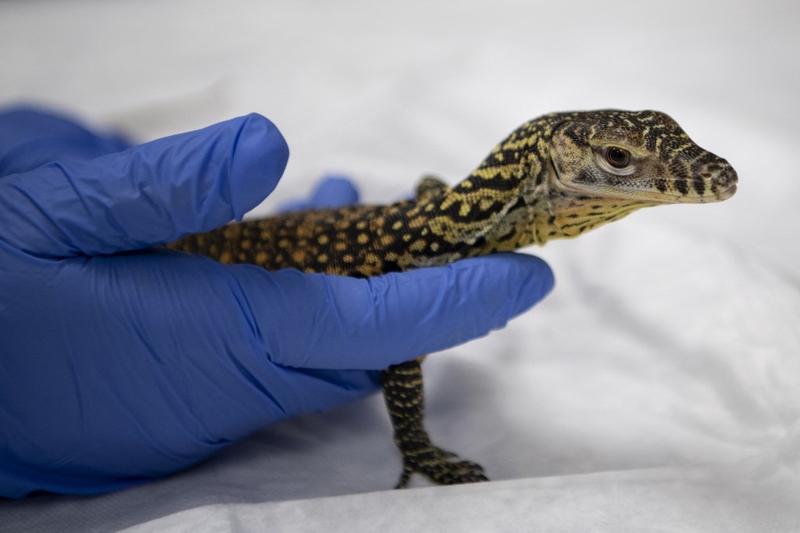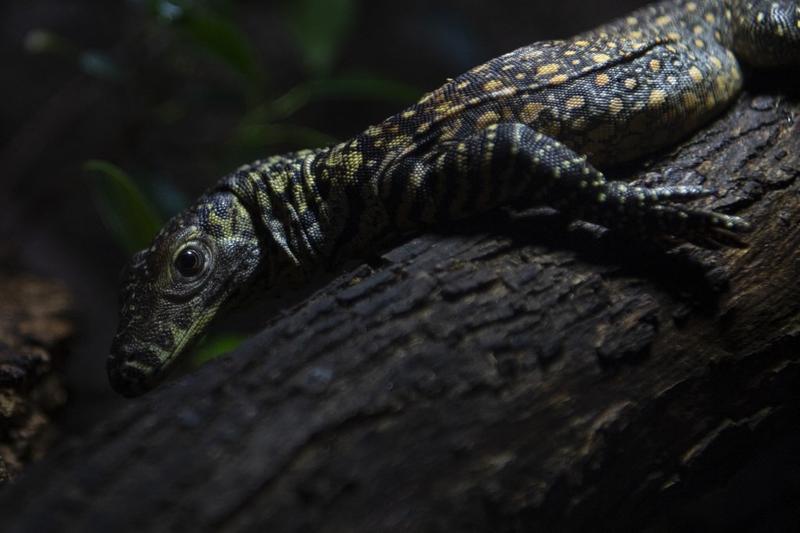 A picture taken at Bioparc in Fuengirola on March 28, 2023 shows a Komodo dragon baby called Fenix. Five Komodo dragon pups called Fenix, Embum, Drakaris, Juanito and Saya were born at Bioparc Fuengirola. (PHOTO / AFP)
A picture taken at Bioparc in Fuengirola on March 28, 2023 shows a Komodo dragon baby called Fenix. Five Komodo dragon pups called Fenix, Embum, Drakaris, Juanito and Saya were born at Bioparc Fuengirola. (PHOTO / AFP)
FUENGIROLA, Spain - Five Komodo dragon hatchlings have been born at a zoo in Spain, the first successful breeding of the world's largest lizard - an endangered species - in the country for a decade.
"This is a great achievement for all of us," Milagros Robledo, the head of the Herpetology department at the Bioparc Fuengirola zoo in southern Spain and self-described "mother" of the dragons, told Reuters on Tuesday.
ALSO READ: Fears for orangutans as Indonesia presses on with new capital
Their birth mother, a 13-year-old female named Ora, laid a clutch of 12 eggs in August. Five out of the dozen were selected and artificially incubated over a seven-month period.
"It was a great task, very tedious and time-consuming, but one that has given us a lot of satisfaction," Robledo said, adding that the hatchlings represented "a hopeful future" for the species.
The hatchlings are lighter than a lemon and shorter than a shoebox, but one day the tiny reptiles could reach a length of nearly 3 metres and weight of up to 70 kilos, with sharp teeth and a venomous bite.
 A picture taken at Bioparc in Fuengirola on March 28, 2023 shows a Komodo dragon baby called Embum. Five Komodo dragon pups called Fenix, Embum, Drakaris, Juanito and Saya were born at Bioparc Fuengirola. (PHOTO / AFP)
A picture taken at Bioparc in Fuengirola on March 28, 2023 shows a Komodo dragon baby called Embum. Five Komodo dragon pups called Fenix, Embum, Drakaris, Juanito and Saya were born at Bioparc Fuengirola. (PHOTO / AFP)
In 2021, these apex predators native to four Indonesian islands were added to the International Union for Conservation of Nature's "Red List", as only about 1,500 specimens remain in habitats that face the threat of climate change.
The baby dragons' parents mated on June 24 last year, when Spaniards celebrate the feast of St John. The first one to hatch was christened Juanito in honour of the date of conception.
ALSO READ:Sharks, tourists jostle for space around Thai destination island
Juanito's siblings include Fenix, so named because the egg survived damage during incubation, and Drakaris, whose name is a reference to George R.R. Martin's popular fantasy series "A Song of Ice and Fire".
In the wild, newborn Komodo dragons tend to move to the treetops and need no maternal or paternal care, Robledo said. But in captivity, they live in separate terrariums so that vets can monitor their growth until they are reunited before being presented to the public.


